News
The Caste System
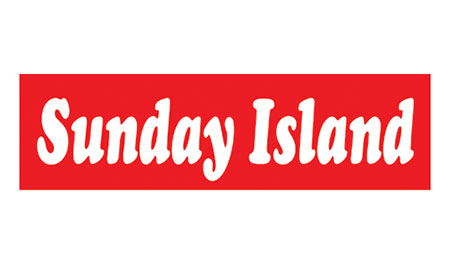
by Vijaya Chandrasoma
Sri Lanka has been long considered a caste-blind society on the basis that it is a predominantly Buddhist country, and the Buddha himself denounced the caste system which was the accepted social stratification system in India.
However, the Sinhalese caste system certainly prevails today, perhaps not to the same degree it existed 100 years ago.
Though the significance of castes may depend on social and educational standing, it still plays an important role in matrimony. Personals in today’s newspapers abound with matrimonial advertisements, which, rather like the dating sites of the west, remain the best way to contract a marriage in a country where open and casual dating is still, by and large, frowned upon. And, unlike the dating sites of the west, requirements of race, religion, caste and often horoscopes are almost always specified.
Whether it’s a marriage based on caste, social and financial standing, or other criteria of compatibility; or the “love marriage” preferred by the progressives, the institution remains a crapshoot. The odds of divorce in the west currently stand at even money, because divorce is both easy and subject to no stigma. Divorce in Sri Lanka is rarer, as it has a social infrastructure to hold a marriage together, but the odds of a happy marriage, without divorce entering the equation, are also about even money.
Caste has never been an issue in our family. For those of us in the lower, or horrors of horrors, mixed lower castes, we proudly say that we do not care about caste. Rather like the billionaire who says he does not care about money. Or the lady married to an Adonis who says she doesn’t care for looks.
There is an interesting story about one of my aunts, which may throw some light on the caste system prevalent in Sri Lanka (Ceylon) in the mid-20th century. The social injustice this system represents prevails, to a lesser degree, even today.
My aunt was a most attractive lady, who met a gentleman at the university. They had a romantic relationship, and were planning to get married. There was one huge problem, however. My father was from the Karawa (fisher) caste, while the prospective groom was of the ‘high’ Goyigama (farmer) caste. Or was he even from the so-called aristocratic Radala caste? I don’t know, my knowledge of the caste system is just about non-existent, constrained as it is by an explanation given by my father, which I will relate at the end of this anecdote. They were planning nuptials, without first getting the blessing of the groom’s parents.
When the father of the prospective groom heard about the impending social disaster to his family, he immediately took a train to Hikkaduwa and imperiously told a villager to summon my grandfather to meet him at the railway station. The villager came back with the response from my grandfather, that if the honorable gentleman wishes to meet him, he’s welcome to do so at his residence.
So the noble gentleman humiliated himself by proceeding to my ‘low-caste’ grandfather’s house. Shunning traditional formalities, he told the old man that his son and my aunt were planning on getting married, which was unacceptable because of the difference in caste. To which my grandfather replied, I am sorry, sir, but you must get your son to stop this marriage. I am unable to do so, as I already have agreed to the marriage of my oldest son (my father) to a lady of an even ‘lower’ caste. My mother was of the ‘low’ Durawa caste, traditionally toddy-tappers, a caste I suspect didn’t even make the top ten. So the high-caste gentleman went back to his aristocratic mountains, and prevailed on his son to desist. Which was the end of that romance.
Time went by. My aunt, obviously a glutton for punishment, fell in love with another of these ‘high-caste’ types. His father, too, objected to the marriage, and made the same trek to Hikkaduwa, meeting with the same response from my grandfather.
My grandfather used to break into English when he was excited. So when his daughter came home for her vacation from the university, he exclaimed, “Your second father-in law also came”.
That particular high-caste gentleman disregarded his parents’ objections and married my aunt. Actually, he was a nice guy, and he was trading up. They enjoyed a long and very happy marriage.
My father’s attitude to the caste system is best illustrated by his answer to a question I think my younger brother Praki asked him when he was about seven years old. He said that the kids at school were talking about their castes, and wanted to know to which caste we belonged. My father said, Well, son, your mother is Durawa, I am Karawa, so you must be Jarawa (filth or trash in Sinhala).
News
Govt. urged to take action against deputy minister
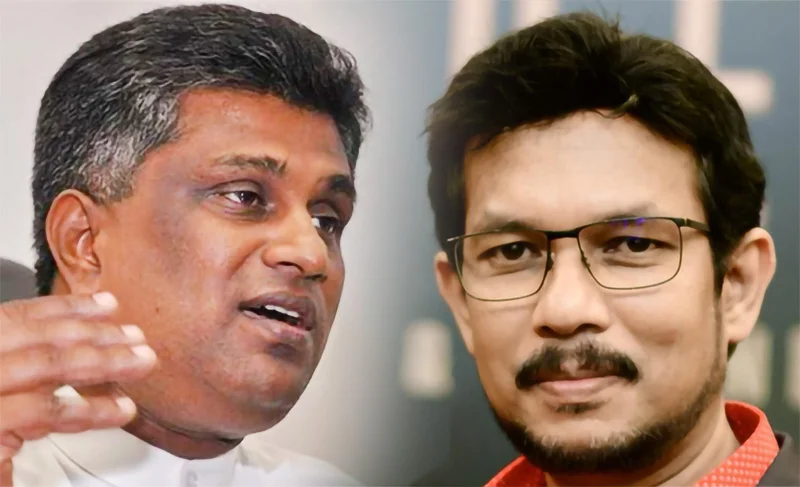
Allegation of doing business with state:
Civil society activist Oshala Herath has said that regardless of the political party one represents, all members of Parliament should abide by the law of the land. Herath said so when The Island sought his response to a report that he was planning to move court against Deputy Minister Eranga Weeraratne, Deputy Minister of Digital Economy, accused of holding the top positions at Omobio (Pvt.) and Eimsky Business Solutions (Pvt.) Ltd., at the time of the nominations, and took oaths as a National List MP of the NPP government.
President Anura Kumara Dissanayake is the Minister of Digital Economy, in addition to being Minister of Defence and Finance.
Herath is the Chairman of Abhinawa Niwahal Peramuna. Herath, whose legal challenge to SJB MP Diana Gamage over her citizenship issue, led to her removal from Parliament by the Supreme Court on 08 May, last year. He said the latest case underscored the responsibility on the part of political parties to ensure transparency in the nomination process as well as in the finalisation of National List.
Herath pointed out that the court rulings on petitions filed by him against two serving MPs were pending. He moved court against Jaffna District Independent MP Ramanathan Archchuna for handing over nominations to contest the 2024 November parliamentary elections without resigning from his post as a government medical officer. He also moved court against Minister of Rural Development, Social Security and Community Empowerment, Dr. Upali Pannilage, alleging that he had been an employee of the University of Ruhuna at the time he was declared an MP and subsequently appointed as a Cabinet Minister.
Our efforts to contact Deputy Minister Weeraratne were in vain. Our calls went unanswered.
Pointing out that there were many attorneys-at-law in the current Parliament, Herath emphasised the responsibility on their part to take up the issue. The Speaker should, on his own, inquire into such allegations in addition to the Parliamentary Privileges Committee stepping in, Herath said. Responding to another query, Herath said that such violations as well as cases of conflict of interests were far more serious than the recent controversy over NPP National List MP Asoka Ranwala’s educational qualifications.
SJB MP Ajith P. Perera told The Island that the Deputy Minister concerned admitted in Parliament that he had held top posts in the companies mentioned at the time he took oaths as an MP. Therefore, there couldn’t be any ambiguity with regard to his fault. Perera said that the conflict of interest issue involving NPPer was far more serious.
Referring to the issue at hand that had been first raised by SJB lawmaker Amila Prasad Siriwardena in Parliament during committee stage of the debate on the 2026 Budget, Attorney-at-Law Perera said that Weeraratne’s companies were engaged in mega business deals with the government. Declaring that they had secured contracts for government projects since 2019, Perera said that one of the companies Weeraratne was involved in had recently won a major contract from the incumbent government regarding the electronic ticketing system.
Kalutara District MP called for a comprehensive inquiry into the issue as the NPP had come to power, accusing all other political parties of waste, corruption, irregularities and mismanagement of state funds. MP Perera queried whether the current dispensation followed proper procedures in selecting Weeraratne’s company for the ticketing project
Both Herath and Perera urged the JVP and NPP to look into what they called the Weeraratne affair.
Over the years, several MPs had been disqualified to hold parliamentary seats. Dr. Rajitha Senaratne is one of them. When the Court of Appeal dismissed Dr. Senaratne from Parliament for being a supplier to the government, Ranil Wickremesinghe brought him back to Parliament, through the National List.
MP Perera said that since the last parliamentary election, the NPP had been embroiled in many controversies, including the release of 323 containers from the Colombo Port, in January this year, followed by signing of seven Memorandums of Understanding (MoUs)/agreements with India in April.
By Shamindra Ferdinando
News
India sends stock of life-saving medicines
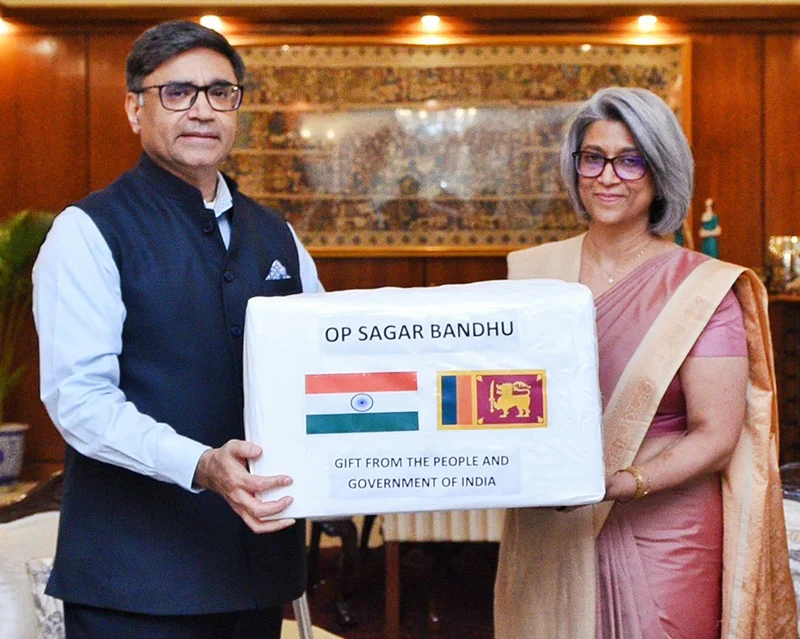
The government has appealed to India for immediate help to overcome the serious shortage of life-saving drugs and injections.
The Sri Lankan High Commission in New Delhi confirmed the appeal made by the government. The following is the text of statement issued by the Sri Lankan mission in New Delhi: “The Foreign Secretary of India, Vikram Misri, over the weekend handed over a consignment of urgently required essential medicines to Sri Lanka’s High Commissioner to India, Mahishini Colonne, in New Delhi. The assistance, extended in response to a request from the Government of Sri Lanka, forms part of Operation Sagar Bandhu, India’s humanitarian mission supporting Sri Lanka’s relief, recovery, and reconstruction efforts following the devastating Cyclone Ditwah.
The consignment consists of over 400 boxes of life-saving medicines and injections, which will be airlifted to Colombo by an Indian Air Force C-17 aircraft, alongside further additional relief assistance from India.
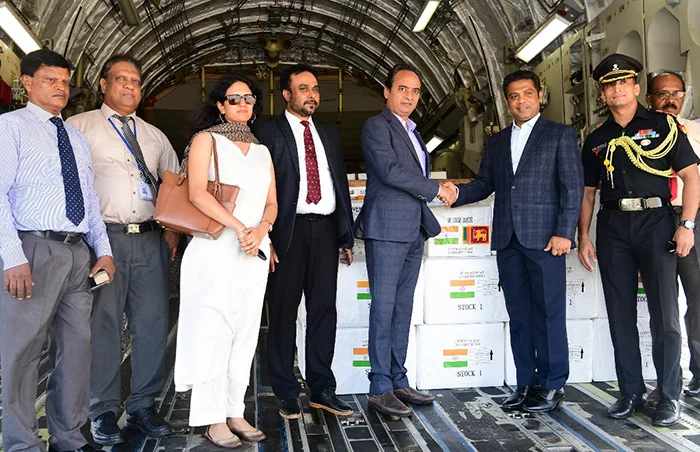
Deputy Indian High Commissioner Pandey shaking hands with Health Minister Dr. Nalinda Jayathissa
Foreign Secretary Misri reiterated the condolences of the Government and people of India for the tragic loss of lives and the extensive damage to infrastructure caused by the Cyclone. He reaffirmed India’s steadfast commitment to supporting Sri Lanka’s immediate humanitarian needs as well as rebuilding and reconstruction efforts. He also highlighted India’s readiness to work with Sri Lanka on a mix of initiatives tailored to the needs of affected communities.
High Commissioner Colonne conveyed the sincere appreciation of the President, Government, and people of Sri Lanka for India’s timely, continuous, and sustained support, and handed over to the Foreign Secretary, a letter of gratitude from the President of Sri Lanka to the Prime Minister of India.
Describing the extensive nature of the damage, the High Commissioner appreciated the ongoing and consistent engagement of the Indian High Commission in Colombo, in collaboration with government officials and local authorities in coordinating relief, rescue, and recovery efforts.
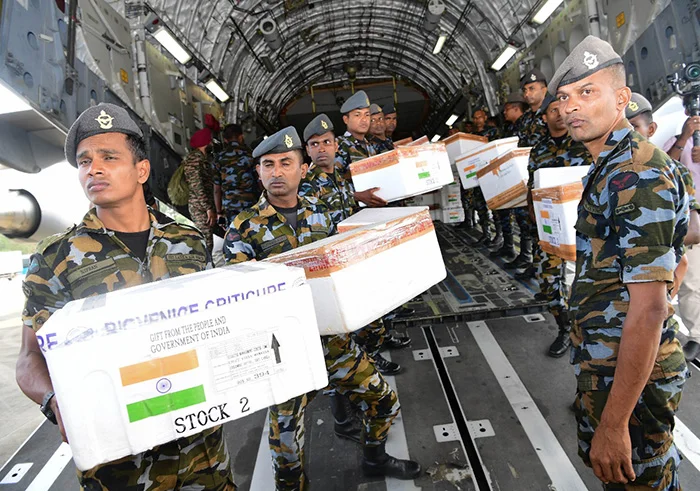
SLAF personnel unloading medicine from IAF transport plane
The High Commissioner also requested India’s support in sharing its expertise and leadership in enhancing disaster-response capabilities and disaster-resilience frameworks, especially lessons from Odisha and Andhra Pradesh, both globally recognized for their advanced disaster resilience frameworks. Apart from this support that is under discussion, the New Delhi-based Coalition for Disaster Resilient Infrastructure (CDRI) has also been requested to undertake a visit to Sri Lanka to explore avenues for strengthening Sri Lanka’s disaster resilient infrastructure capacities. Noting the importance of having an effective and real-time warning system, efforts are being made to deploy a team to explore the establishment of an early warning system that would provide real-time geo-targeted alerts to citizens.
The High Commissioner reiterated Sri Lanka’s gratitude to the Government and people of India for their continued solidarity under Operational Sagar Bandhu, reaffirming the strength of the longstanding partnership between the two nations.”
News
George Keyt Foundation contributes to national disaster relief efforts
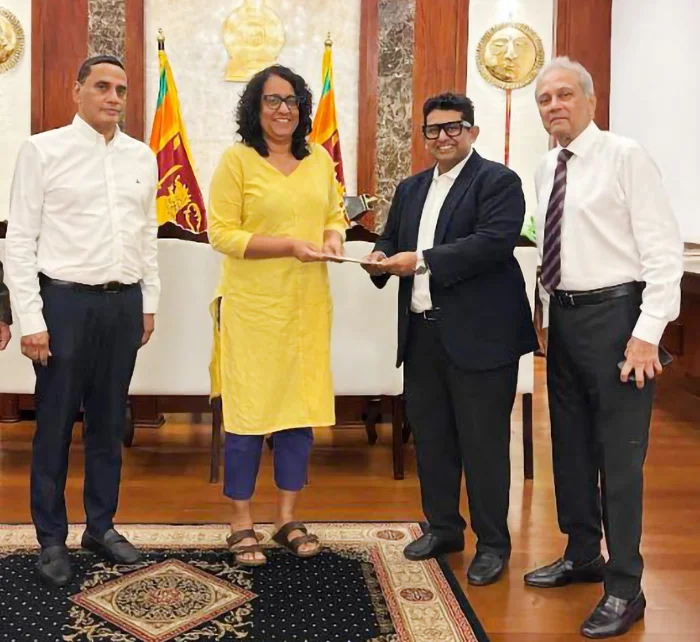
The George Keyt Foundation (GKF) has extended meaningful support to the Government of Sri Lanka’s disaster relief efforts following the severe devastation caused by Cyclone Ditwah.
The text of the press release issued by the GKF: “In 2023, the Foundation undertook its first major fundraiser in recent years by issuing 30 numbered limited edition prints of Kangodi Rangi, a painting by George Keyt entrusted to the Foundation. Twenty-eight prints were acquired by donors to support charitable causes, while another was gifted to the President’s collection. Print Number 1 of 30 was retained to support the Foundation’s long-term priorities.
In light of the unprecedented impact of Cyclone Ditwah and the urgent national need for disaster assistance, the trustees unanimously resolved to seek a donor for Print Number 1 of 30, with clear disclosure that the proceeds would be channeled directly to the Government’s disaster relief programme. This appeal received an immediate response, resulting in a private donation of Rs. 3 million.
The contribution was formally handed over to Prime Minister Harini Amarasuriya for utilisation in the Government’s ongoing relief and recovery efforts.
The George Keyt Foundation is honoured to support the people of Sri Lanka at this critical moment and reaffirms its commitment to serving national needs while preserving and promoting the artistic legacy of George Keyt.
-

 Features5 days ago
Features5 days agoFinally, Mahinda Yapa sets the record straight
-

 News6 days ago
News6 days agoCyclone Ditwah leaves Sri Lanka’s biodiversity in ruins: Top scientist warns of unseen ecological disaster
-

 Features5 days ago
Features5 days agoHandunnetti and Colonial Shackles of English in Sri Lanka
-

 Business4 days ago
Business4 days agoCabinet approves establishment of two 50 MW wind power stations in Mullikulum, Mannar region
-

 News7 days ago
News7 days agoJetstar to launch Australia’s only low-cost direct flights to Sri Lanka, with fares from just $315^
-
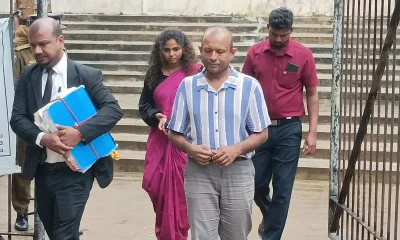
 News4 days ago
News4 days agoGota ordered to give court evidence of life threats
-
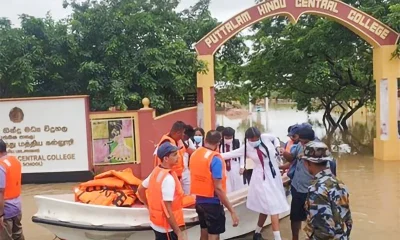
 Features6 days ago
Features6 days agoAn awakening: Revisiting education policy after Cyclone Ditwah
-

 Features4 days ago
Features4 days agoCliff and Hank recreate golden era of ‘The Young Ones’













